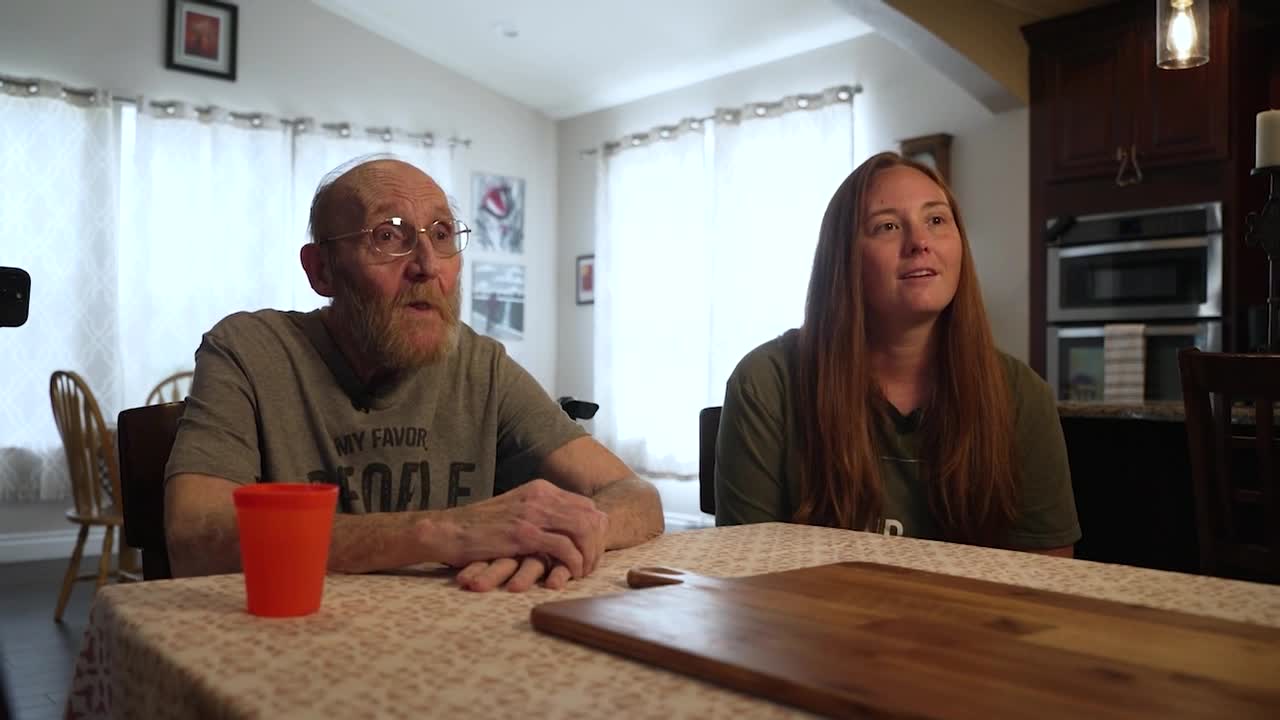FORT LUPTON, Colo. — Each year, more than one in four Americans aged 65 and older takes a fall, according to the Centers for Disease Control and Prevention (CDC). The CDC also reports that the fall death rate for older adults rose by 41% between 2012 and 2021, fueled in part by a fast-growing aging population.
Experts and caregivers say the vast majority of falls — particularly those that happen at home — are preventable with some attention to quick home safety measures.
For Gene Lanier, a 77-year-old Air Force veteran living in Fort Lupton, the statistics became personal last year.
“I was going down the stairs one day, and I was about four or five stairs up, and I slipped and went down, landed on my head on the floor, and I took my neck and my shoulder and my ribs, my eye sockets, my skull, just about everything,” he recalls.
The fall resulted in broken bones and internal injuries which left him hospitalized for a month, followed by a year of rehabilitation. “It was pretty scary,” his daughter, Deandra Lanier, says.

Gene’s experience is all too common. The CDC says that falls are the leading cause of injury-related death among older adults, with over 36,000 deaths and three million emergency department visits in 2021 alone. Serious complications often follow. “We joked about we could probably write a review of every hospital and medical center in Colorado because of how many times we had to call emergency because some other complication rose up,” Deandra said about Gene's continued complications.
Even before his fall, the Lanier family was working with Senior Helpers, a home care service, to create a safer living environment for Gene and his wife, Judith. “Every person who’s come through has given some piece of advice, like, oh, maybe you should do this a little bit different. Or, oh, maybe you should put this here instead,” said Deandra.

Key changes included installing a stair lift, taping down or removing loose rugs, rearranging furniture and charging cords to create clear pathways, and improving lighting throughout the house.
“We don’t have rugs around the house anymore, and I think that happened kind of organically,” Deandra said. “There’s a lot of stuff we shifted around to try and create that clear path of travel everywhere throughout the house," she added. These small changes mean Gene and Judith can continue to live at home—close to their grandchildren and the family support system they value deeply. “I want the kids to have a good relationship with their grandparents and have them close. That just makes sense,” explained Deandra.

Caregivers like Monica Gardea, a personal care assistant with Senior Helpers, focus on identifying hazards before they cause harm. “You always want to take a look at the home and see if there’s any differences or changes that they’ve done,” she explains. Monica checks for loose carpets, unsecured cords, and obstacles on the floor.
She also notes that medications and even pets can increase the risk of falls if not properly monitored.
For Gene and his family, the changes have been life-changing. “It’s been years in the making of people coming through, giving a piece of advice, and then doing something a little bit different to keep people safer,” said Deandra.

The companionship and help from caregivers, plus the support of family, allows him to live where he wants to be.
“Having somebody that comes to the house and helps us with that has been really meaningful…even the companionship element of it, there’s been a few times where they’ve gone for a walk around the block to just go for a walk, because they can when he’s got somebody who can help them with it," said Lanier.
For more tips and statistics about preventing falls in older adults, visit the CDC’s website.





